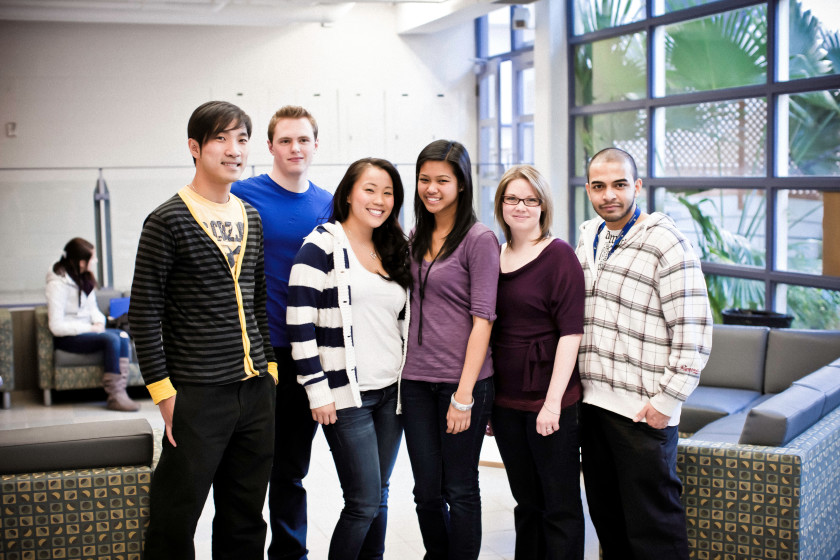Studying for a degree is tough. If you’re studying one that’s not in your native language… we salute you. It does get easier and these study tips for international students can make a big difference.
Leaving your home, friends and family behind to go off to university is scary enough as it is. But if you’ve decided to go abroad you’ll have to adapt to a different culture as well as face the difficulties that come with studying in a foreign language.
Take it from someone who’s been through it and is all too familiar with the worries that might keep you up at night. I was terrified not to be able to keep up with my fellow students, that my work wouldn’t live up to my professors’ expectations and that I would have a hard time making friends. There’s no doubt that studying in a language that isn’t your own is a challenge but you’ll be amazed at how quickly you’ll improve and grow to love your new foreign surroundings. Check out these nine study tips that will help you along the way.
1. Watch movies (yes, really!)

Watching your favourite TV shows and films in the language you’re trying to learn is a great way to improve without feeling like you’re studying. Pick something you enjoy, and ideally already know, so you can focus on the language instead of figuring out the plot. Turning on the subtitles and reading along is especially helpful when actors are speaking with a heavy accent. Plus, hearing the words and reading them at the same time will make it much easier to remember them.
2. Become part of a language exchange programme

Language exchange programmes are very popular among international and local students alike. You create an online profile, which lists your native language as well as the language you would like to learn. You will then be paired up with someone who matches your profile. Everything is completely voluntary so you and your partner can decide how often you want to meet up in person to chat in your respective native languages.
3. Form a study group

Ask local students if they’re interested in forming a study group. Not only is studying together more fun than poring over your textbooks by yourself but you’re also working with native speakers that can help you make sense of things you might not fully understand. A distant second to human interaction are services like Studypool, an online marketplace for paid tutoring.
4. Attend a pre-sessional course

Many universities offer pre-sessional language courses during the summer, focussing on language learning as well as skills needed for academic studies. They’re not free but they’ll help you settle in and prepare you for the start of the academic year. Depending on your visa status and your language level you might even be required to take one. Other than that, be sure to browse the university’s website to find out if free language classes are held during the semester.
5. Download a language app

Practising a foreign language a little every day goes a long way, and the many free learning apps are a great way to do just that. You can solve some grammar exercises while waiting for the bus or pull out your phone during an especially boring lecture to study some vocabulary. We really love Lingua.ly due to its virtual flashcards and fun learning games but find the one that works best for you.
6. Make friends from outside your own country

Settling into a new foreign place can be daunting and you’ll probably instinctively flock to people from your own country who are going through the same experience. While there’s nothing wrong with having a few friends from back home, you should try to meet local people as well, be it by signing up with a society or a sports club or just chatting to your fellow students between lectures.
7. Engage in your courses

Don’t be afraid to participate in lectures and tutorials and to speak up when there’s something you don’t understand. While studying abroad, I used to hold back during group discussions, worrying I’d make a fool of myself. When I did finally gather the courage to participate, I realised there had been no need to worry as my peers and tutors took my input seriously and were happy to explain things to me in simpler terms.
8. Get a part-time job

Although attending lectures and staying on top of your reading will take up quite a bit of your week, you might still have enough time for a part-time job. You’ll make new friends with your co-workers, be forced to speak to customers in their language, and be left with some extra money in your pocket.
An alternative to a part-time job could be voluntary or charity work, both excellent ways of getting involved with your local community and practising your language skills.
9. Pick your accommodation carefully

International students often end up housed together but if possible you should ask to be placed with local students when applying for accommodation. While your flatmates may not become your best friends for life you’ll be interacting with them on a day-to-day basis. The more you speak the faster you’ll improve, even if it’s just a quick chat about whose turn it is to do dishes. We can help with this at Student.com
10. Record your lectures and tutorials

It can really stress you out if there’s a part of a lecture or seminar which you don’t understand. As you’re trying to work it out, you miss the next part of what’s going on, then you’re out of sync, and the whole thing becomes a bit of a mess. If you record your lectures or tutorials on your phone (it’s usually a good idea to ask permission first), then any part you’re not sure about, or want to go back and review, you can simply write down the time in the recording it happened at, and go back to it later.
But also remember point number 7 if you’re in a tutorial or seminar, people are happy to go over things and help out – everybody will probably be happy of the review!
11. Relax, enjoy the challenge and let the friendly people around you help!

The biggest enemies of improving your language skills are being afraid of making mistakes, not just going for it, not enjoying yourself and not asking people to help you out. People love to teach what they know. They don’t think you’re silly for not being able to speak a language perfectly, they’re amazed at how much you do know and admire you for putting yourself in a position to learn lots more. Smiles, laughter and learning together are all you need.
So now your language skills are on the right track – how about making lots of new local friends?
12 Things You Can Do To Make More Local Friends When Studying Abroad
